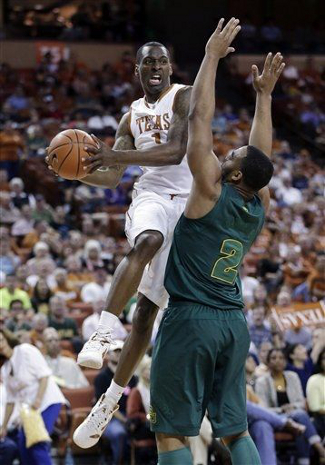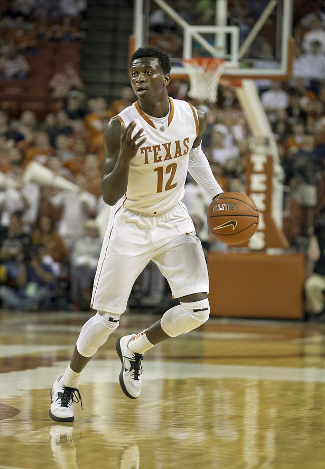Texas Longhorns 79, Baylor Bears 70
For forty minutes on Monday night, the young, beleaguered Texas Longhorns finally looked like a team. Role players made key contributions, stars stepped up to make huge buckets, and the squad that had so often folded under pressure actually responded to adversity with poise and composure. The Longhorns turned back the Bears and their comeback bid at every opportunity, holding on for a 79-70 win in the final home game of the season.
The loss was especially damaging to Baylor, which entered the game as one of the “First Four Out” in Joe Lunardi’s latest Bracket Math update. It was the fifth defeat in the last six games for the Bears, and the eighth loss in the team’s last 11 contests. After also squandering an opportunity for a résumé-building win against Kansas State two days ago, Baylor now must put all of its eggs in the “upset Kansas” basket on Saturday. Even with a victory there, the Bears still would likely need a solid win over the Big 12’s No. 3 seed in the conference tournament next Thursday to truly feel comfortable.

Sheldon McClellan led Texas with 23 points
(Photo credit: Eric Gay/Associated Press) 
Texas might have been a bubble team with Kabongo
(Photo credit: Ralph Barrera/Austin American-Statesman) |










